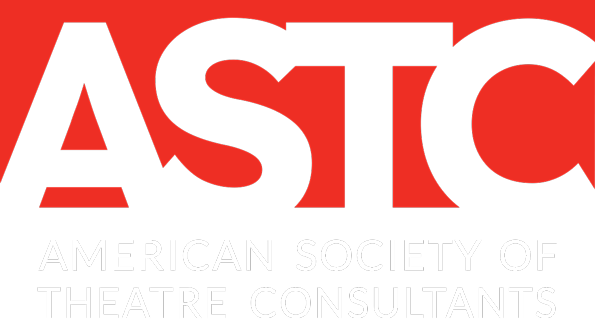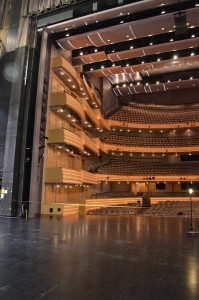How Much Will My Theatre Cost?
By R. Duane Wilson, ASTC
“How much will my theatre cost?” is the question most often asked of a theatre consultant and the question most difficult to answer.
Resisting flippant answers like “How much have you got?” or “More than you can imagine”, most consultants try to narrow the range of possible answers by asking questions, including:
- Who is asking?
- Why do they need to know?
- What type of “theatre”?
- Where is it located?
- Which Cost Metric is needed?
Who and Why:
An Owner and their funding resources need to know estimated total cost, often without many details, in order to set fundraising goals. This includes everything: Land cost, site improvements, construction, equipment, professional fees, start-up costs, and endowments or sustainability plans for operations. Occasionally, specific estimates are needed if the goal is to pair a donor with some specific project scope, like a Donor’s Lounge or to secure naming rights for a performance venue.
An Architect wants to know construction costs and major theatre systems equipment costs.
A Developer is generally looking for the best compromise between functionality and lowest cost to maximize profitability.
What Type and Where:
The choice of performance venue type has a huge impact on cost. A simply equipped black box venue can be a small fraction of the cost of a fully fitted-out proscenium roadhouse or opera venue. Multi-use venues combine traditional theatre forms with concert halls or cinemas. Other major factors include number of seats, community or organizational needs, and general program expectations.
Where a venue is located also has significant impacts on costs. A given venue might cost 50 to 60 percent more in labor costs alone if built downtown in a large city, compared to a similar venue built in a suburban or rural area. Also, projects in a central business district generally do not need to consider patron parking issues with the availability of mass transit, parking garages, and the population living nearby. Outside of a city’s urban core, it may be necessary to including parking and, if a large venue, there could be the need for roadway infrastructure improvement costs. In the northern US, coat rooms, sidewalk deicing and such need to be considered, but not so much in South Florida or Houston.
Which Cost Metric:
In order to compare costs, one must choose a basis for the comparison: a “metric”. Common Cost Metrics include:
- Cost per square foot or meter
- Cost per cubic foot or meter
- Construction Cost
- Furnishings and Equipment Cost
- Soft Costs
- Total Project Costs
The most common metric is cost per unit area of floor. While this metric may function well for residential, commercial, and most educational projects, it is woefully inaccurate for performance venues. Each year, millions of square feet of office and educational spaces are built, making cost averages for those projects meaningful and useful. However, the total square footage of performance venues constructed each year is relatively small. Since there are fewer data points and the averages are skewed by outlying data, cost by floor area may be a less reliable metric for performance venues. This issue will be discussed in a future article.
For performance venues, cost per unit volume is a much better metric. However, the cost per unit volume is rarely used and harder for people to relate to. This issue will be discussed in another future article.
In commercial and most educational projects, construction cost is most often separate from equipment and furnishings costs. The developer of an office building is interested only in the construction costs; the equipment costs are born by the tenants. Performance venues, with complex equipment which must be integrated with the construction process, merges construction and equipment costs. This skews the overall metric cost as compared to commercial or educational construction costs.
Finally, there is total cost. This includes land, building construction, site work, parking lots, landscaping, design and permit fees, all equipment, inflation, etc. Total cost should also include allowances for the first-year startup costs and for an endowment for future costs.
The inevitable response to most attempts in answering the “How much will it cost?” question is “Why are these buildings so darn expensive?”
This is the first installment in a series of articles exploring the factors that influence the overall costs of “building a theater.” Future installments will discuss the “volume metric” and explore such factors as gross-to-net square footage, acoustical concerns, structural requirements, front of house usage, backstage spaces, electrical and plumbing needs, mechanical and fire protection concerns, site costs, fees, and how they all apply uniquely to performance venues.
Every theatre project is unique, and generalizations cannot provide an accurate answer to cost questions. There are professional performing arts cost consultants, whose specialty is cost prediction of performance spaces. Many projects would benefit from hiring such a specialist. For all projects, an excellent supporting source for cost information on your unique project is an ASTC theatre consultant.
Disclaimer: Any views or opinions expressed in this article are solely those of the author and do not necessarily represent those of the American Society of Theatre Consultants. This article is for general information only and should not be substituted for specific advice from a Theatre Consultant, Code Consultant, or Design Professional, and may not be suitable for all situations nor in all locations.



